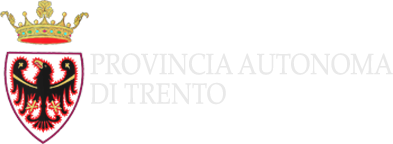Smarano International Organ Academy 2017
The Journey of Orfeo: Monteverdi’s rhetorical world and its influence on Keyboard Music

Claudio Monteverdi, Girolamo Frescobaldi, François Couperin, Franz Tunder,
Johann Sebastian Bach
Every year Smarano (Trento, Italy) hosts organists and students of organ playing from all over the world who want to learn from internationally acclaimed organists and teachers.
Smarano is a unique cultural platform in Europe: it isn’t just a summer school where students play once in a masterclass and have no time to practice: it is an immersion environment based on historical methods of teaching, where participants attend multiple integrated classes, have four hours a day of scheduled practice time on multiple keybaord instruments and share as much knowledge as they gain from being in this environment.That is why Smarano’s motto is a quotation from Seneca: Docendo Discitur, meaning “it is learned by teaching”.
The Smarano Academy is a true meeting platform where people in our field gather to learn from one another and teach one another about a valuable European cultural heritage: the art of keyboard music before 1800. More than 350 alumni attended the Smarano Academy since 1993.
The “Smarano International Organ Academy 2017” will be held from July 30th – August 10th 2017 and consists of courses, concerts and individual coaching. Application can be made as an active or non-active participant.
In 2017 we celebrate the 450th birthday of Claudio Monteverdi. If any musician has ever contributed to a musical revolution, fundamentally changing soundscapes and ideas for the next generation, it is Monteverdi. Under his lucky star, the Smarano Academy also celebrates its own 25th birthday.
Although Monteverdi never wrote for keyboard, we will explore the rhetorical world of his work and its essential role in developing a new musical language an independent instrumental music culture. Our journey originates here, following Orpheus’s footsteps to recompose the threads of the ultimate ability of the music: to move the souls of the listener, engage the emotions, and speak directly to the heart.
Also in the 500th anniversary of Martin Luther’s Reformation, we will explore how Monteverdi’s rhetorical practice expresses itself in the Protestant world as well and the Catholic Church of the Counter Reformation. For Luther, music becomes a method of preaching (sonora predicatio) to move and guide the souls of the faithful.
ARTISTIC DIRECTOR
Massimiliano Guido
STEERING COMITTEE
Edoardo Bellotti
Lorenzo Ghielmi
Joel Speertstra
COURSES AND TEACHERS (Active participants have to apply for the entire Academy)
Edoardo Bellotti: Frescobaldi, improvisation
Michel Bouvard: François Couperin
Armando Carideo: History of music sources and research tools
Hans Davidsson: Franz Tünder
Ulrika Davidsson e Joel Speerstra: “The Art of Fugue”, J. S. Bach
Emilia Fadini: The rhetoric of sound: moving the “affetti” in the Italian Seicento
Lorenzo Ghielmi:
A) “Seicento italiano”: early instrumental sonatas and vocal monody in the time of Monteverdi
B) Frescobaldi
William Porter: J. S. Bach (free works), improvisation
Elam Rotem: The continuo at the age of Monteverdi and Frescobaldi
Pieter van Dijk: J. S. Bach, chorale
Simone Vebber: J. J. Fux
TUTOR
Lea Suter
Source: www.smaranoacademy.com
organization: Fondazione Accademia Internazionale di Smarano

